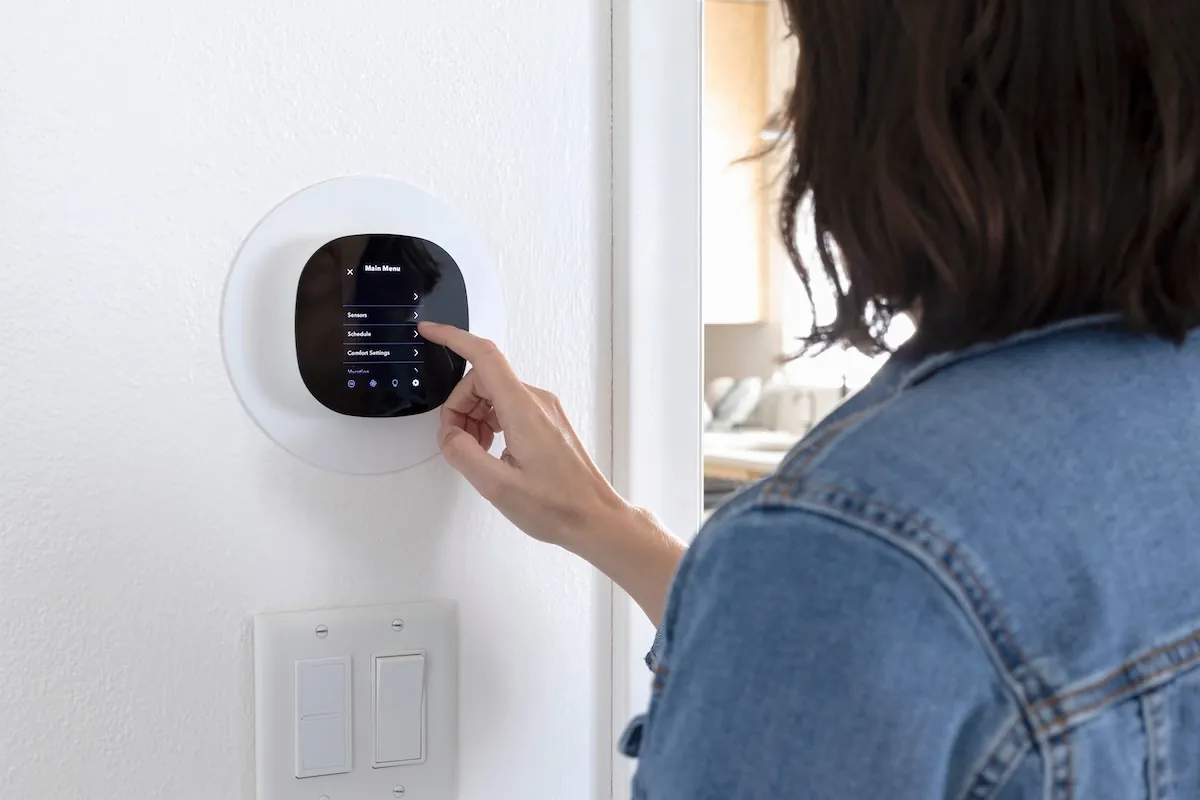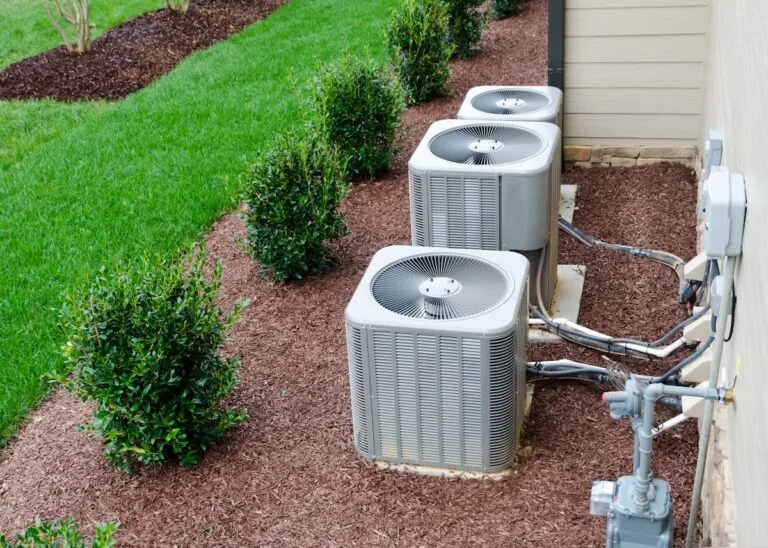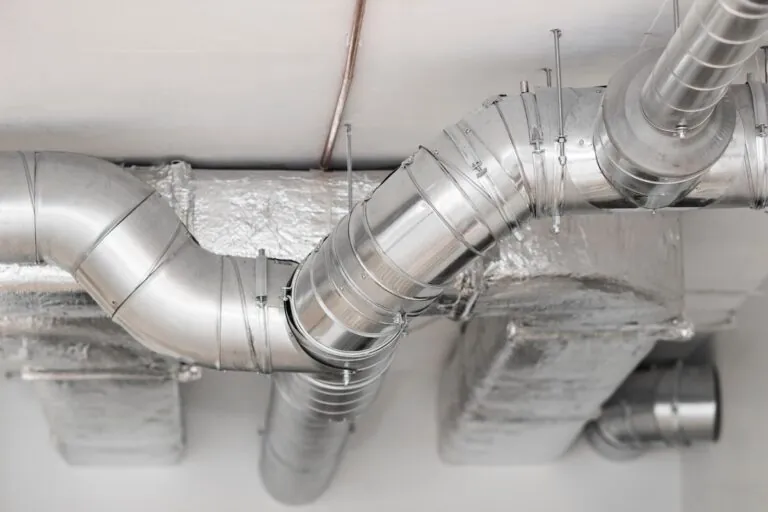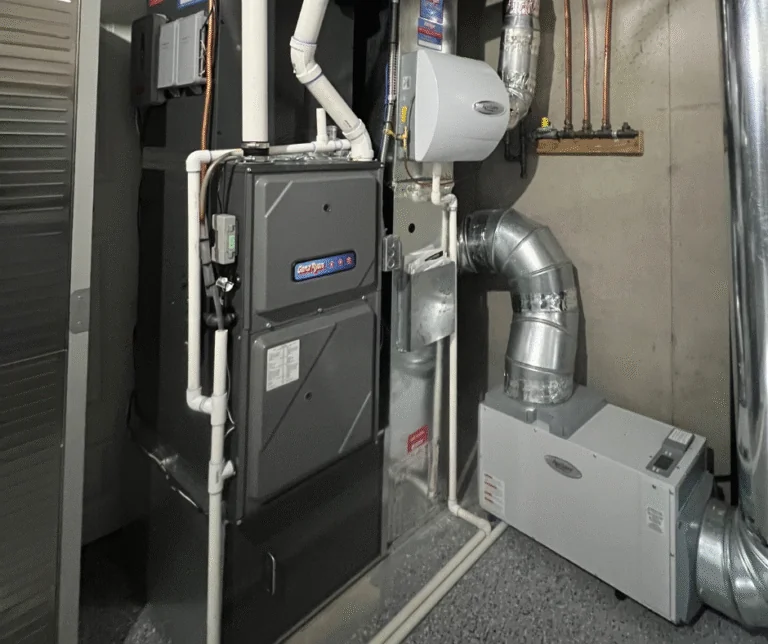As more homes embrace modern technology, smart HVAC systems are becoming a popular upgrade for homeowners looking to improve comfort, energy efficiency, and control. These systems combine traditional heating and cooling components with advanced sensors, automation, and connectivity to create a more responsive indoor environment.
But with a higher upfront cost than standard systems, many homeowners wonder—are smart HVAC systems worth the investment?
In this guide, we’ll break down what makes a system “smart,” the benefits and features to expect, and whether this upgrade makes sense for your home.
- Smart HVAC systems offer greater control, energy savings, and system efficiency
- They can be managed remotely through smartphones, apps, or home automation platforms
- Long-term savings and convenience often outweigh the higher initial cost
🤔 What Is a Smart HVAC System?
A smart HVAC system integrates your heating and cooling equipment with intelligent controls, sensors, and wireless communication. Unlike traditional systems that rely on a basic thermostat and manual adjustments, smart systems can automatically adjust based on your habits, schedule, weather, and preferences.

Common Smart HVAC Features
- Smart thermostats that learn your behavior and adjust automatically
- Zoned heating and cooling to control temperatures by room or area
- Remote access via smartphone apps or voice assistants
- Air quality monitoring and automatic fan adjustments
- Real-time performance alerts and maintenance reminders
- Integration with smart home systems like Alexa, Google Home, or Apple HomeKit
Smart HVAC technology is available for both new installations and upgrades to existing systems.
✅ 5 Benefits of Smart HVAC Systems
Smart HVAC systems aren’t just a trendy upgrade—they provide real, measurable improvements in how your home stays comfortable.
1. Energy Efficiency
By adjusting temperatures based on occupancy, outdoor conditions, and time of day, smart HVAC systems reduce energy waste. This leads to lower heating and cooling bills, especially in homes where schedules vary or zones go unused for long periods.
- Thermostats can automatically lower the temperature while you’re at work and raise it before you get home
- Zoned systems avoid heating or cooling unused areas
- Smart sensors monitor usage patterns and optimize efficiency over time
2. Remote Control and Monitoring
With a smart HVAC system, you can check and adjust your settings from anywhere using your phone or tablet. Whether you’re on vacation or just in bed, you have full control over your home’s comfort.
- Adjust temperature settings remotely
- Turn off systems accidentally left running
- Monitor performance and receive alerts if something’s wrong
3. Custom Scheduling and Automation
Smart systems can be programmed to match your routine, adjusting automatically without constant input. Many models also use geofencing to detect when you’re near home and prepare your space accordingly.
- Customize temperature preferences by time, day, or zone
- Use motion sensors to adjust temperatures when rooms are unoccupied
- Receive reminders to change filters or schedule maintenance
4. Improved Comfort
Smart HVAC systems fine-tune your indoor environment to prevent temperature swings and maintain better airflow and humidity control.
- Zoned systems help avoid hot or cold spots
- Continuous adjustments mean fewer temperature fluctuations
- Integrated humidity control helps improve air quality
5. Long-Term Cost Savings
While the initial cost is higher, the energy savings and reduced wear on your equipment can lead to long-term savings. Smart HVAC systems help your equipment run more efficiently and last longer by minimizing stress and reducing unnecessary run time.
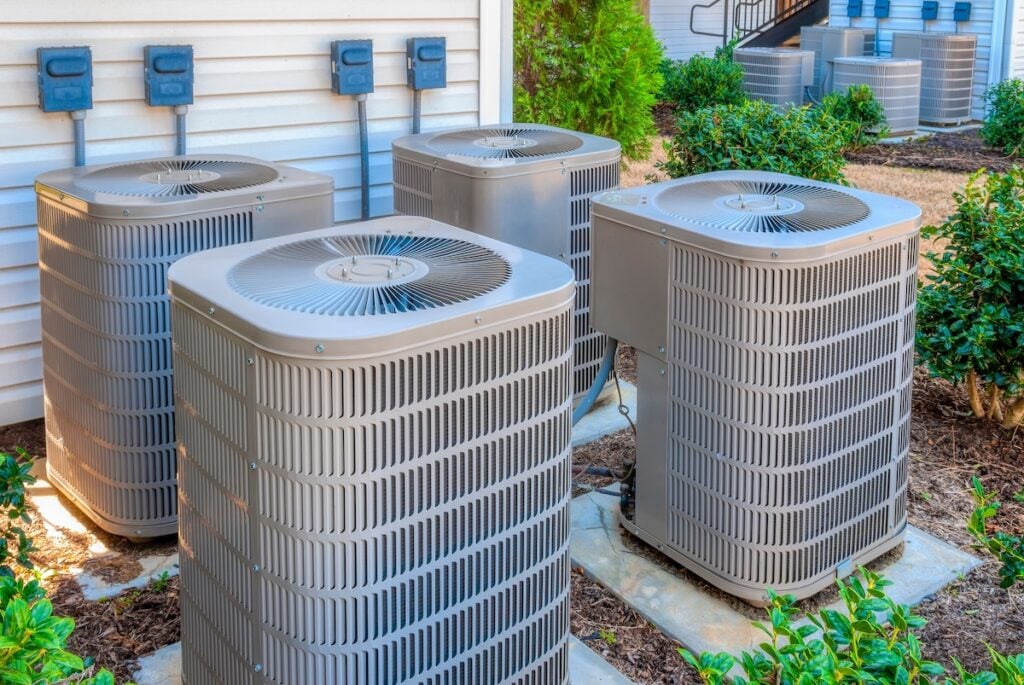
📋 Smart HVAC vs Traditional HVAC: Key Differences
| Feature | Traditional HVAC | Smart HVAC |
| Thermostat Control | Manual or basic programmable | Adaptive, automated, and remote-enabled |
| Energy Efficiency | Moderate | High |
| Remote Access | No | Yes |
| Custom Scheduling | Limited | Extensive and flexible |
| Maintenance Alerts | No | Yes |
| Integration with Smart Homes | No | Yes |
| Cost | Lower upfront | Higher upfront, lower long-term costs |
👉 Are Smart HVAC Systems Worth It?
Whether a smart HVAC system is worth the investment depends on your lifestyle, home size, and budget. For many homeowners, the benefits easily justify the cost.
When It Makes Sense
- You want more control over your home’s heating and cooling
- Your family has a varying schedule or members with different comfort needs
- You plan to stay in your home long enough to see the return on energy savings
- You’re upgrading an older system or building a new home
- You’re interested in integrating your HVAC with other smart home devices
When You Might Wait
- You live in a small space with simple HVAC needs
- Your current system is new and running efficiently
- You prefer low-tech, manual control over home automation
💵 How Much Do Smart HVAC Systems Cost?
Costs can vary depending on the level of smart technology, system size, and any required upgrades. On average:
- Smart thermostat installation: $300 to $600
- Full smart HVAC system installation: $8,000 to $15,000, depending on the equipment and home layout
- Zoned smart systems: May cost more upfront but provide better long-term energy savings
Many utility companies offer rebates for smart thermostats and energy-efficient HVAC systems, helping reduce initial costs.
⭐️ Can You Upgrade an Existing System?
Yes. In many cases, you can add smart features to your existing HVAC system without replacing the entire setup.
Easy Smart Upgrades Include:
- Smart thermostats that connect to your existing furnace and AC
- Zoning systems added with motorized dampers and sensors
- Wi-Fi-enabled air quality monitors or vent controllers
Before making changes, it’s best to consult an HVAC professional to ensure compatibility with your system.

🏠 Smarter Comfort, Lower Bills, and Full Control
Smart HVAC systems offer more than just convenience. They give you the power to manage your home’s comfort, energy usage, and system health in ways that traditional setups simply can’t.
If you’re ready to enjoy better temperature control, lower energy bills, and a more efficient HVAC system, contact Genz-Ryan today for a free quote. Our team will help you explore your options and find the smart HVAC solution that’s right for your home.



